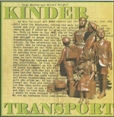 In
the spring of 2009, I was privileged to spend Pesach with four friends
from New York at a kosher hotel in Majorca, Spain. My trip from Montreal to the
island was somewhat convoluted owing to scheduling problems – Montreal to
Amsterdam, Amsterdam to Madrid, Madrid to Palma. However, I timed my arrival in
Madrid to coincide with that of my New York friends and we were ferried from the
airport in Majorca by shuttle bus to our beautiful hotel on the other side of
the island.
In
the spring of 2009, I was privileged to spend Pesach with four friends
from New York at a kosher hotel in Majorca, Spain. My trip from Montreal to the
island was somewhat convoluted owing to scheduling problems – Montreal to
Amsterdam, Amsterdam to Madrid, Madrid to Palma. However, I timed my arrival in
Madrid to coincide with that of my New York friends and we were ferried from the
airport in Majorca by shuttle bus to our beautiful hotel on the other side of
the island.
Most of the other guests hailed from the UK or France – we met only one woman
and her daughter from North America. The hotel in which we stayed, the Green
Garden, was located in a resort by the name of Cala Ratjada on the southwest
shore of the island of Majorca. We stayed in suites with a comfortably furnished
bedroom, an adjoining living room and a balcony. Some of the suites had views
looking onto the swimming pool and gardens.
The hotel prepared everything for observant Jews. The kitchen replaced the
cooking pots, utensils, dishes and cutlery for the festival. All surfaces,
indeed the entire hotel, were thoroughly cleaned so no crumbs were left of foods
usually eaten. Ingredients permitted in a kosher home during the rest of the
year are forbidden and all bread is forbidden and replaced by matzah.
On the first two evenings of the Passover, families and friends gather to
celebrate the ‘Seder’ (Hebrew for ‘order’), which consists of recounting
the exodus of the Israelites from Egypt after 200 years of slavery, and their
journey to Israel. Several symbolic foods are tasted, including ‘charoseth’,
a delicious blend of sweet wine, nuts, dates and raisins, representing the
mortar used by the Israelite slaves to bind bricks together, and horseradish,
representing slavery with its bitter taste. Also, four cups of wine are drunk in
the course of the proceedings.
The food was fabulous, varied and copious and wine was also served at dinner,
all kosher for Pesach. There was a chazzan-in-residence (cantor) who also
acted as a rabbi. He conducted services during the two days of the chag
(festival) at the beginning and end of the holiday.
During chol hamo’ed, the intervening days, guided tours were organized to
other parts of the island, including the capital, Palma, a very sophisticated
Spanish city. The highlight was a trip by luxury coach on a beautiful sunny day
up and across the high mountain range on the west side of Majorca to a
picturesque, tiny port on the east side of the island where we ate our packed
lunch; then by boat along the coast to a larger town with a marina at which many
luxurious yachts were moored. We traveled a few kilometres inland by a tramway
to a medieval neighbourhood of the town. There, we had free time to roam around,
admire the cathedral and stroll in the boutiques. Our return trip was on a small
train that wound its way up and across the mountain range, offering some
magnificent views to the outskirts of Palma, where we boarded a bus to take us
back to the hotel. This trip included every mode of land transportation except
bicycle, horse and elephant!
The hotel also provided evening entertainment. To be honest, it was not the
greatest and catered largely to the kids. However, it enabled people to get
together, shmooze and sometimes, mildly complain, a 3000-year-old tradition
enjoyed by our people.
The village of Cala Ratjada itself is interesting. It is built around an old
harbour for fishing boats. On each side of the harbour a boardwalk extends
several kilometres with wonderful views of the sea and the coast. Close to the
harbour there is an array of restaurants, out-of-bounds to us as Jewish tourists
owing to the dietary requirements for Pesach, but nevertheless amusing to
watch people watching people. The hotel where we stayed also offered bicycles,
ideal for exploring the coast, the boardwalk and the environs.
Swimming either in the hotel pool or at the beach was not possible since the
weather was too cool. However, it was far more comfortable than in New York or
Montreal at that time of year, and fortunately, in spite of one or two cloudy
days, it never rained.
On the Shabbat afternoon, I took a walk with a friend to an old fortress, built
on a hill, outside the town. The view from the top was very impressive, but
since there was an entry charge on our day of rest when we are not permitted to
carry money, we were unable to see the inside.
This year, my friends and I have booked rooms for Pesach in a hotel near
Venice, Italy, run by the same organization. As was the case last year, the cost
to value ratio is excellent, especially considering that the price includes
everything – accommodations, food and gratuities. The only extra charge is for
excursions. Naturally, though, we must pay our own airfare to the destination.
Between now and then, our main task will be to pray for good weather and a stay
in Italy as enjoyable as that which we experienced last year in Spain.




 Bottom
Bottom





 In
the spring of 2009, I was privileged to spend Pesach with four friends
from New York at a kosher hotel in Majorca, Spain. My trip from Montreal to the
island was somewhat convoluted owing to scheduling problems – Montreal to
Amsterdam, Amsterdam to Madrid, Madrid to Palma. However, I timed my arrival in
Madrid to coincide with that of my New York friends and we were ferried from the
airport in Majorca by shuttle bus to our beautiful hotel on the other side of
the island.
In
the spring of 2009, I was privileged to spend Pesach with four friends
from New York at a kosher hotel in Majorca, Spain. My trip from Montreal to the
island was somewhat convoluted owing to scheduling problems – Montreal to
Amsterdam, Amsterdam to Madrid, Madrid to Palma. However, I timed my arrival in
Madrid to coincide with that of my New York friends and we were ferried from the
airport in Majorca by shuttle bus to our beautiful hotel on the other side of
the island.







 Printer
friendly page
Printer
friendly page